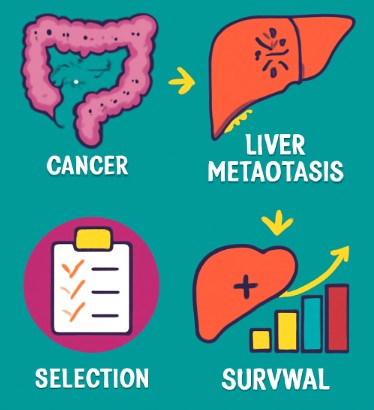Expanding Frontiers: Liver Transplantation as a Curative Modality for Unresectable Colorectal Liver Metastases: A Precision Oncology Approach
Keywords:
- Colorectal Liver Metastases, Liver Transplantation, SECA Trials, Precision Oncology, Ctdna, Oslo Score, Immunosuppression, Unresectable CRLM, MELD Exception, Transplant Oncology.
Abstract
Colorectal cancer (CRC) remains a major global health burden, with liver metastases (CRLM) representing a significant cause of mortality. While surgical resection offers curative potential, only a minority of patients with CRLM are eligible due to anatomical or biological constraints. Historically, liver transplantation (LT) for CRLM showed poor outcomes, but recent advancements in imaging, molecular profiling, immunosuppression, and patient selection have reignited interest in LT as a potentially curative modality for unresectable CRLM. Landmark studies such as SECA-I, SECA-II, and TRANSMET have reported 5-year overall survival rates exceeding 80% in carefully selected patients, positioning LT as a viable alternative to systemic therapies and liver-directed treatments. The integration of biomarkers such as ctDNA, the Oslo score, RECIST response, and molecular exclusion criteria (e.g., BRAF V600E, dMMR) now enable precision selection and surveillance. Innovations like normothermic perfusion, extended criteria donors, and living donor transplantation have also expanded organ availability while addressing ethical considerations. Despite promising outcomes, standardized post-transplant chemotherapy regimens remain undefined, and immunotherapy poses challenges due to graft rejection risks. Ongoing trials and emerging technologies, including AI-driven imaging and liquid biopsies, are expected to shape the future of transplant oncology, potentially transforming the therapeutic paradigm for metastatic CRC.






